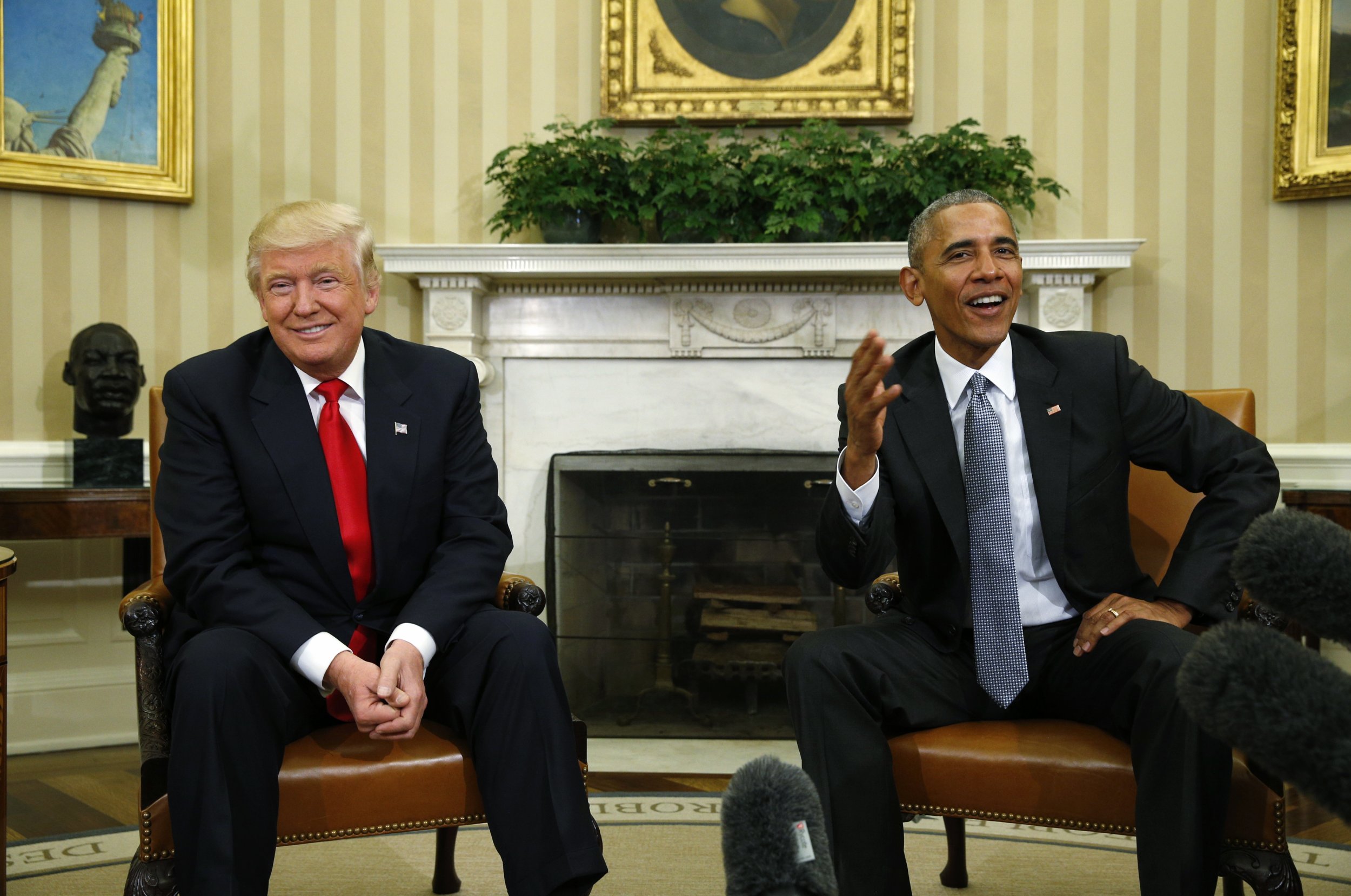
By 2 a.m. on November 9, it was becoming uncomfortable at the U.S. embassy in London if you were one of the Republicans invited to their election night party.
The national polls had consistently given Democratic nominee Hillary Clinton a narrow lead in the presidential race and the Clinton-supporting attendees were anticipating victory.
But, proudly sporting my Trump-Pence 2016 sticker, and having supported him since June 16, 2015—when the billionaire announced his presidential candidacy—I knew only too well that "you can't stump the Trump."
Victory came just as Trump said it would. Just after 3.30 a.m. in London, he gained Ohio, then Florida, then North Carolina, then Pennsylvania, leaving him just two electoral college votes shy of the 270 needed to win the presidency.
Then, at 7.30 a.m., Trump flipped Wisconsin from Democratic blue to Republican red. In securing the state's 10 electoral college votes, Trump had done what Paul Ryan, the 2012 Republican vice-presidential nominee who represented Wisconsin, could not.
As Trump surged to victory, the much-predicted collapse of the Republican party in the House of Representatives and the Senate didn't happen. For the first time since 1928, the executive and the legislative branches are both Republican.
Perhaps most importantly, the president-elect (how thrilling to be able to write that) is now able to propose a nominee to fill the present Supreme Court vacancy.
It really is—to quote Ronald Reagan—"morning again in America." This was an election victory that fused the best of Reagan's 1980 and 1984 wins and reignited the Reagan coalition, the combination of voters who secured his landslide 1980 win.
According to the exit polls, Trump boosted the Republican share of the Hispanic vote, from 27 percent under 2012 Republican presidential nominee Mitt Romney to 29 percent. He gained 8 percent of the black vote (and if we dig into these figures around 13 percent of the black male vote), while his vote among white women was a stunning 53 percent.
It has been the greatest reverse takeover of a political party and system ever—with the renunciation of the Bush dynasty, and the end of the Clintons.
So how did Trump manage to win the election? For a start, many Americans believed that the U.S. was on the wrong path. They saw Trump as the change candidate and Clinton as "Obama's third-term."
The president-elect's criticism of free trade particularly hit home in the U.S.'s Rust Belt, where millions of jobs have been lost over the decades. Pennsylvania, Ohio, Michigan and Wisconsin are all Rust Belt states that turned red for Trump.
Across the U.S., Trump's tough stance on immigration appealed to many voters. For too long, illegal and legal immigration reform has been seen as a third-rail issue in the U.S., with politicians too afraid to really address it.
The president-elect's promise to repeal the Affordable Care Act—also known as ObamaCare—played well with many of his supporters. On October 24, the U.S. government announced that the cost of premiums for mid or silver-level ObamaCare health plans would rise by a national average of 25 percent in 2017.
At his acceptance speech Trump reaffirmed his commitment to uniting the country—which despite his sometimes uncomfortable rhetoric, I believe he is uniquely placed to do. The movement that took President-elect Trump as their champion now has a voice for its agenda and a revitalized conservative movement to enact it.
David Hawkins is the events chair of American Voices International, an independent political action committee. He supported and advocated for Trump throughout his presidential campaign.
Uncommon Knowledge
Newsweek is committed to challenging conventional wisdom and finding connections in the search for common ground.
Newsweek is committed to challenging conventional wisdom and finding connections in the search for common ground.
About the writer
To read how Newsweek uses AI as a newsroom tool, Click here.








